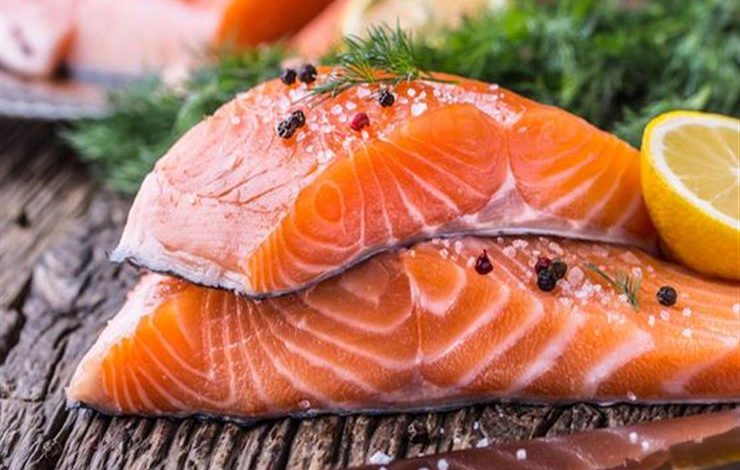
بعض الأسماك لها فوائد أكثر من غيرها
بعض الأسماك لها فوائد أكثر من غيرها
يمكن أن تشكل المأكولات البحرية خياراً صحياً في نظام غذائي متوازن بشكل عام. ومع ذلك، ليس كل نوع من الأسماك يعتبر جيداً من منظور غذائي وفق الخبراء.
فقد أوضحت ميشيل روثينشتاين، اختصاصية تغذية أمراض القلب في موقع EntirelyNourished.com أن الأسماك ليست متساوية عندما يتعلق الأمر بملفها الغذائي، لذا فإن اختيار أنواع معينة قد يكون أكثر فائدة لصحتك.
والقائمة أدناه تبين أفضل وأسوأ الأسماك لصحتنا وفق خبراء التغذية.
سمك السالمون
وأفضل الأسماك لصحتنا هو سمك السالمون، وهناك أسباب وجيهة لحصول هذه السمكة على الكثير من الحب من المتخصصين في مجال الصحة.
وقالت لوري رايت، اختصاصية تغذية مسجلة وأستاذة في جامعة جنوب فلوريدا: “يعد سمك السلمون من بين أفضل الخيارات للأسماك الصحية. فهو يحتوي على نسبة عالية من أوميغا 3 – الدهون التي تساعد على صحة القلب والأوعية الدموية والدماغ – كما أنه يحتوي على نسبة عالية من البروتين”.
المحار
كذلك يعتبر المحار غنياً بأوميغا 3 وغني بالحديد أيضاً. كما أنه مفيد للبيئة. ولكن هناك تحذير واحدبشأنه وهو عدم استهالاكه نيئاً.
السردين
وأشار خبراء التغذية أيضاً إلى السردين الغني بأحماض EPA وDHA، وأحماض أوميغا 3 الدهنية، التي توفر فوائد مضادة للالتهابات وصحة القلب. إضافة لاحتوائه على نسبة عالية من فيتامين د كما أنه غير مكلف.
الهلبوت
في موازاة ذلك يعد سمك الهلبوت من الخيارات الجيدة فهو غني بالسيلينيوم، وهو مضاد للأكسدة مفيد للقلب ويقلل الالتهاب والإجهاد التأكسدي.
ومصدر جيد لفيتامين ب6، وهو مفيد لصحة المناعة والأعصاب والكبد.
السمك الأحمر
وسمك النهاش الأحمر أيضاً من الخيارات المفيدة فهو مصدر غني بالبوتاسيوم، ما يساعد على تحسين ضغط الدم وصحة الشرايين، ومصدر جيد للبروتين وفيتامينات ب.
أما أسوأ الأنواع فهي كالتالي:
سمك النعل
وحذر الخبراء من أن سمك النعل يحتوي على مخاطر عالية للملوثات، كما أنه منخفض في العديد من العناصر الغذائية الصحية للقلب مثل أوميغا 3 والبوتاسيوم والمغنيسيوم.
كما يحتوي على نسبة عالية من الصوديوم مقارنة بالبوتاسيوم، ما قد يزيد من مستويات ضغط الدم.
البلطي المستزرع
أما الأسماك الأخرى التي قد ترغب في الابتعاد عنها هي أسماك البلطي المستزرعة، والتي تحتوي على مستويات عالية من الملوثات والمضادات الحيوية وأحماض أوميغا 6 الدهنية التي يمكن أن تكون مسببة للالتهابات وتساهم سلباً في تحقيق أهدافك الصحية.
سمك خشن برتقالي
وتُعرف هذه السمكة أيضاً باسم السمك الخشن الأحمر، حيث يتمتع نبات الخشن البرتقالي بعمر طويل، ما يعني أنه غالباً ما يلتقط العديد من الملوثات طوال حياته، بما في ذلك المستويات العالية من الزئبق.
سمك القرش
ويقول الخبراء إنه من الجدير بالذكر أن هذا المخلوق قد لا يكون مفيداً لصحتك أو للبيئة.
وتحتوي أسماك القرش على نسبة عالية جداً من الزئبق، وهو مادة سامة للأعصاب. ويجب تجنبه تماماً من قبل النساء الحوامل والأطفال. علاوة على ذلك، فإن أعداد أسماك القرش آخذة في الانخفاض أيضاً.
التونة
يمكن أن تكون هذه السمكة مثيرة للجدل، فهي مصدر غني بالفيتامينات B6 وB12، ما يساعد على دعم صحة المناعة والهرمونات والأعصاب.
مع ذلك، فإن التونة ليست مصدرًا رائعًا لأحماض أوميغا 3 الدهنية المضادة للالتهابات، كما أنها تحتوي على مستويات عالية من الزئبق، لذا إذا كنت تستمتع بها، فيجب أن تحاول الحد من تناولها إلى مرة أو مرتين في الأسبوع.
ونظرًا لمحتواه العالي من الزئبق، قد يلزم استهلاكه صفر مرات – أو مرة واحدة فقط في الأسبوع – من قبل مجموعات معينة من السكان، مثل الأطفال الصغار والنساء الحوامل أو المرضعات.
وخلص الخبراء إلى أنه يجب على الأطفال تجنب هذا النوع من التونة تماما، ويجب على النساء في سن الإنجاب ألا يستهلكن أكثر من أربع أوقيات في الأسبوع.






